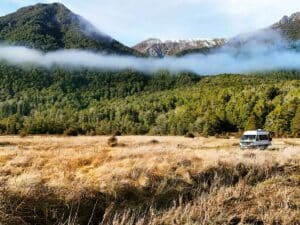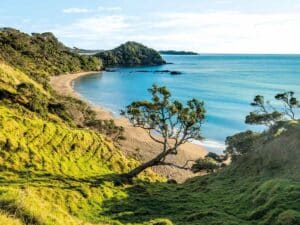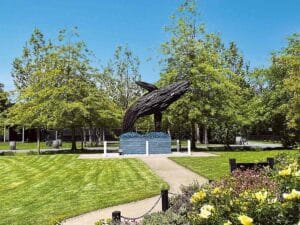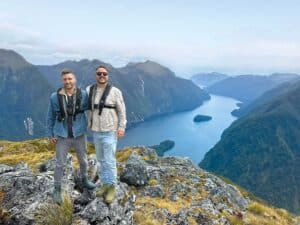I understand that the world has always been my oyster. What I had no knowledge of was an oyster’s world. That was until I took my place on New Zealand’s only oyster farm tour last week.
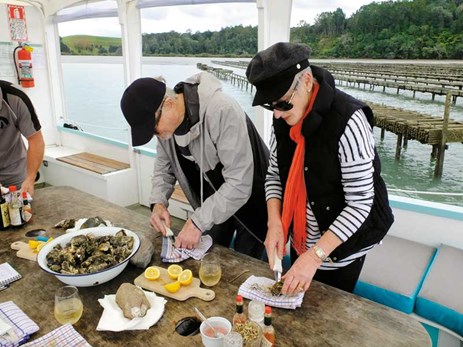 |
A lesson in shucking! |
The Shuckle Ferry, a small flat bottom craft, sans trimmings, leaves Scotts Landing on the Mahurangi Peninsula daily and slides quietly across shallow water to the spread of oyster farms in Brownes Bay near the western bank of the river.
Exactly where it ends up depends on the tide. The farming of Pacific oysters in New Zealand first began in Brownes Bay, and its sheltered reaches are covered with mollusc-bearing racks that look like the skeletal remains of sea monsters.
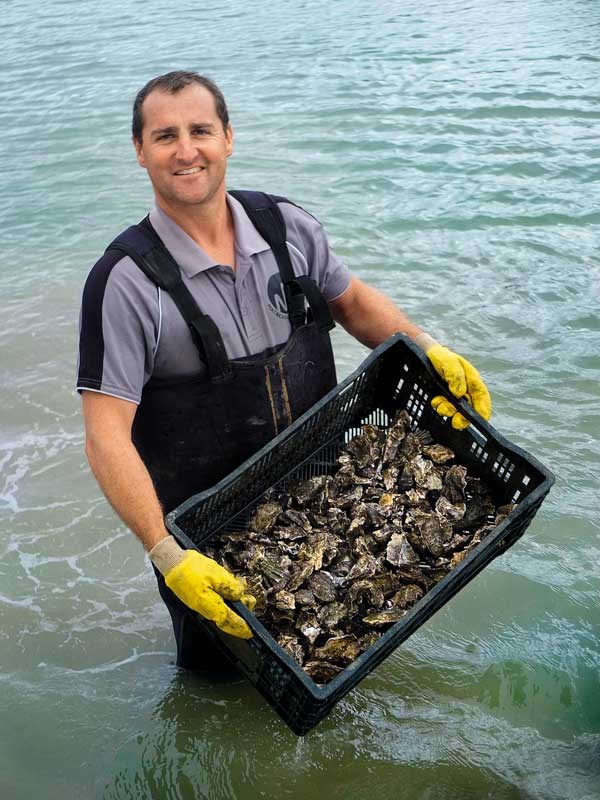 |
Phil with a feast in a basket |
The oysters, however, are very much alive, clinging to the wooden batons and growing fatter by the week. They are not the prettiest of bivalves, but to a shellfish gourmand like myself, the presence of thousands (maybe millions) of those distorted, slate-coloured shells was a wonderful sight.
Skipper and Shuckle Ferry owner is Phil Morris. He’s no stranger to the waterways around here. He worked on the Kawau ferries before spending 12 years working on super yachts around the world.
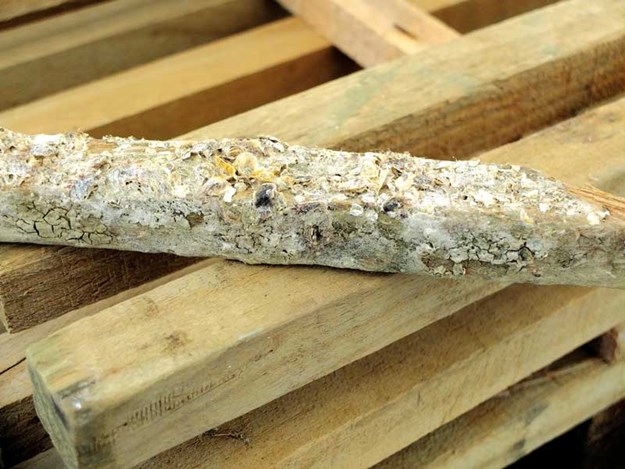 |
Baby oysters attach themselves to wooden batons and settle down to grow |
He is now more of a landlubber, but his occupations are still linked to the sea. Phil first set up summer tours down the Matakana River, then bought an oyster farm at Mahurangi, and last year, the ferry and tour operation. The amount of interest the little shellfish generates surprises him.
“I think it’s getting out on the water, harvesting your own food and eating it on the spot,” he said. “We don’t get to do this much in the modern world.” Phil is one of those confident, straight-talking types, and his enthusiasm as he told us about the up and downs of aquaculture was catching.
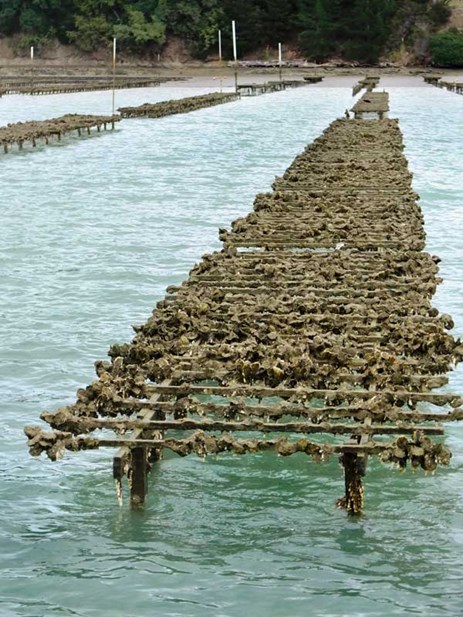 |
A sight for oyster-lovers’ eyes – thousands of the bivalves ripe for the plucking! |
“New Zealand pacific oysters are immigrants,” he said. “They arrived here in the 1960s as stow-aways on the hulls of foreign ships. Farming started in the 1970s. Today the techniques are much the same and the methods are still surprisingly simple.”
He picked up a small timber stick. “The process starts when spat settle on these. Then the sticks are nailed onto racks that sit just above water level at low tide.”Like all babies, their next task is to eat and grow.
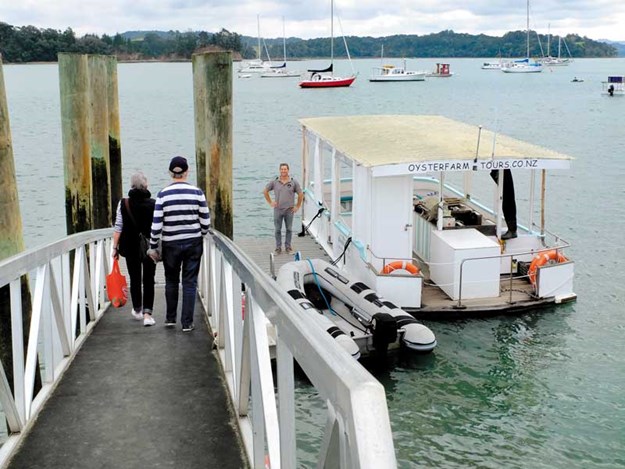 |
All aboard on the only oyster farm tour in New Zealand |
Their larder is the nutrient-rich water and they take about 12-20 months to reach market size. Phil jumped into the tide in his wetsuit and began filling our own larder. My mouth started to water before he’d even got the booty on board.
But before we got to taste a morsel, we had to learn to shuck, holding the sharp knobby shells in tea towels so we didn’t shuck one of our own digits instead. It wasn’t as easy as it looked, but I’m an oyster addict and desperate to get at the prize.
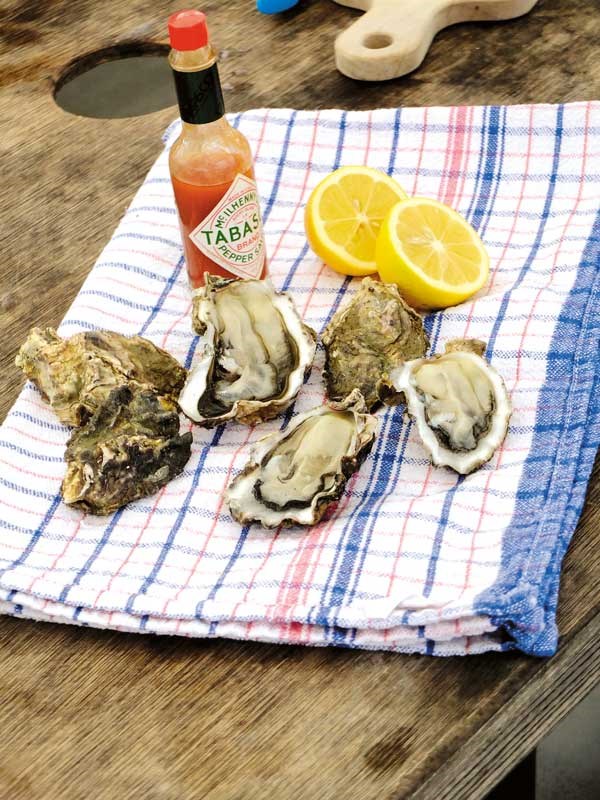 |
An irresistible feast of plump, freshly shucked oysters and a dash of lemon or tabasco sauce |
The next half hour or so was almost an out-of-world experience – savouring the tender flesh of crassostrea gigas, as many as I could shuck and eat. Each melted on my tongue with the strong, faintly metallic taste of the sea and I washed it down with a crisp, chilled white wine.
Phil also barbecues them on board with garlic and lemon. Those poor benighted souls who shudder at the thought will possibly be gagging by now, but it was the first time in my life that I had to say ‘that’s enough’ to an oyster feast. Below the water’s surface, shadowy figures lurked.
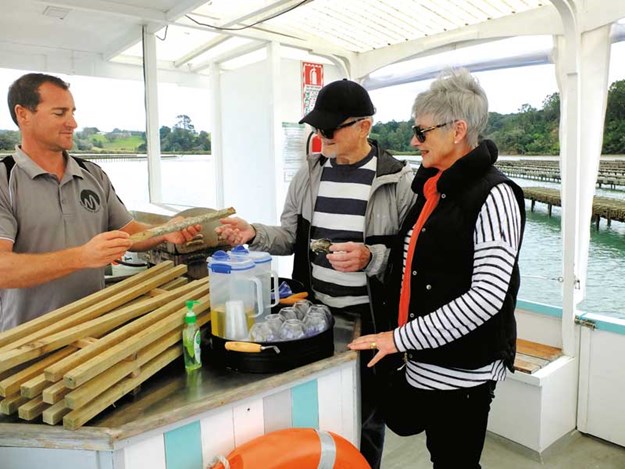 |
Phil demonstrates the process |
They were stingray come for the buffet along with the herons and cormorants which pick at the crumbs. I didn’t see an oystercatcher, but Phil assured me they weren’t far away. Being out on the water of that lovely harbour is a great experience for anyone. For an oyster lover it’s seventh heaven.
Note: It is essential to book 24 hours in advance. To make a booking, visit oysterfarmtours.co.nz
Win a two-hour oyster tour for two people with Shuckle Ferry Tour (Valued at $190)
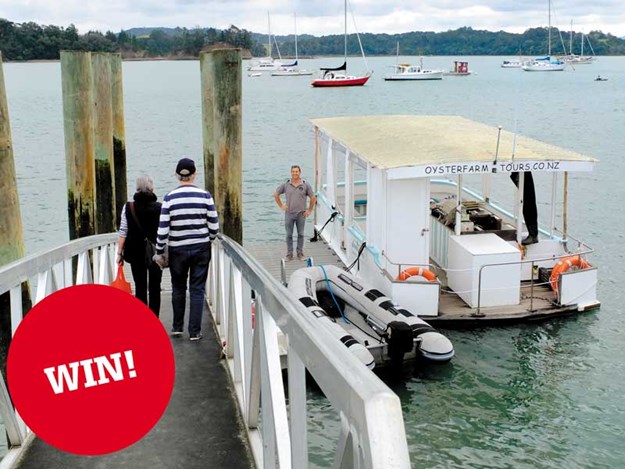
Be in to win a two-hour oyster tour for two people with Shuckle Ferry Tours, valued at $190!
Enter here before 28 June, 2019.

